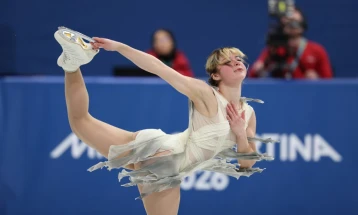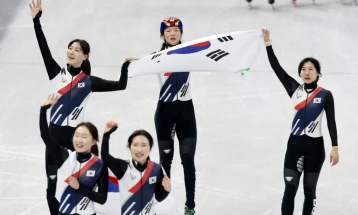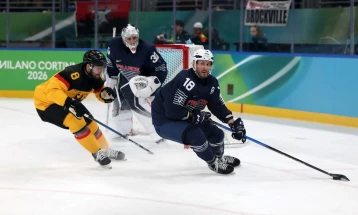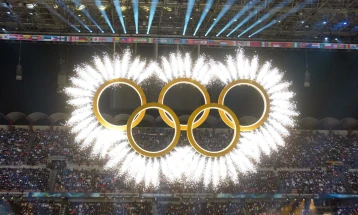Djokovic set to be deported from Australia after losing visa appeal
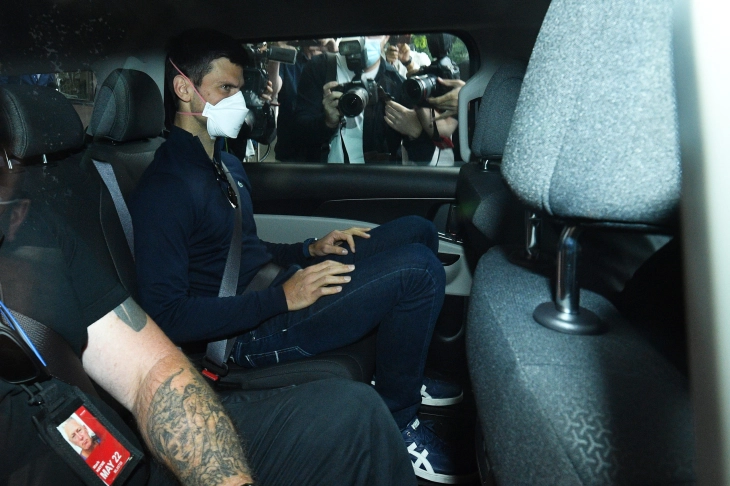
Melbourne, 16 January 2022 (PA Media/dpa/MIA) — Unvaccinated tennis star Novak Djokovic has lost his last-ditch appeal against the cancellation of his visa and faces deportation from Australia.
The verdict from Chief Justice James Allsop came following a unanimous decision from the three judges hearing the case at the Federal Court of Australia on Sunday.
The decision means, barring further legal action, nine-time champion Djokovic will not be defending his title at the Australian Open, which starts on Monday, and could be unable to travel to Australia for three years.
Djokovic, who spent another night at the Park detention hotel on Saturday, had been due to face compatriot Miomir Kecmanovic on Monday and will now be replaced in the draw by a lucky loser.
The three judges deliberated for a little over two hours before Chief Justice Allsop delivered the verdict just before 6 pm (0700 GMT) in Melbourne having heard submissions from both parties earlier in the day.
Immigration Minister Alex Hawke re-canceled Djokovic's visa on Friday using personal powers after the world number one had won an appeal against the initial decision to bar him from the country when he arrived on Jan. 5.
Hawke's decision on Friday was unexpectedly based not on the validity or otherwise of Djokovic's exemption from Covid-19 vaccination, which was the reason for the initial cancelation, but on the notion his presence in the country could stoke anti-vaccination sentiment, making him a danger to public health, as well as civil unrest.
To succeed in an appeal, Djokovic's legal team had to prove that Hawke had either acted outside his powers or that his decision was irrational, and Chief Justice Allsop made a point of stressing the judges were not able to assess the merits of the case.
Nick Wood, acting for the Serbian, focused on three aspects – that there was no evidence his presence would stoke anti-vaccination sentiment, that evidence was also lacking for the idea Djokovic opposes vaccination, and that Hawke had not considered whether deporting the nine-time Australian Open champion would lead to increased support for the anti-vaccination cause.
Wood said: "Not a single line of evidence in the material provided any specific or logical foundation whatsoever that the mere presence of Mr Djokovic in Australia in itself may somehow foster anti-vaccination sentiment."
Djokovic created global headlines early in the pandemic for being quoted as saying he was "opposed to vaccination," although he later clarified that he was against being forced to take a vaccine to travel to tournaments and would keep an open mind on the issue.
Wood criticized Hawke for not referencing that clarification, while he argued the response to the overturning of the initial visa cancellation, which included police pepper spraying Djokovic supporters on the street, demonstrated that deporting him could have a negative impact on public health and public order rather than the other way around.
"The clearest and most attractive window through which to view the error is the public interest lens," he said. "It is irrational or unreasonable to look at only one side of the coin."
Hawke's lawyer Stephen Lloyd spent a considerable amount of time countering that argument.
"The minister was aware his decision to cancel would result in some level of further unrest but the minister was principally concerned that Mr Djokovic's presence would encourage people to emulate his position and that would put the health of Australians at risk," said Lloyd.
On the issue of whether it was fair to present Djokovic as taking an anti-vaccination stance, Lloyd said: "His ongoing non-vaccination status is open to infer that a person in the applicant's position could have been vaccinated if he wanted to be.
"Even before vaccines were available he was against it – his prima facie position was to be against them."
He made reference to anti-vaccination groups "treating the applicant as a hero" as he moved on to Hawke's central claim of Djokovic's presence having the potential to negatively impact public health.
Lloyd said: "He's a high-profile person who is in many respects a role model for many people. His presence in Australia would present more strongly to Australians his anti-vaccination views. People use high-level athletes to promote ideas and causes all the time. His connection to a cause, whether he wants it or not, is still present."
The case erupted in early January when Djokovic had his visa canceled the first time due to improper proper documentation to enter the country, which has some of the world's strictest entry policies due to the coronavirus pandemic.
The case of the 34-year-old Serbian has become a lightning rod, especially in a country that kept many of its own citizens locked out for months or years due to coronavirus concerns.

